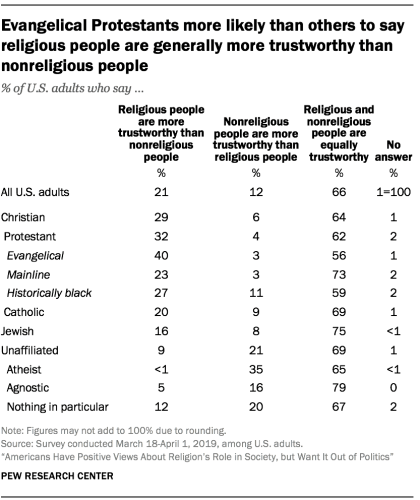Interesting that the atheists show the strongest bias. Highlighting my contention that most atheists are really just anti-religion. So much so that real atheists have pretty much been driven right out from under the atheist label umbrella.
If you look at the rest of the survey that I pulled that from, that narrative comes out even moreso. I thought about making a thread about that too, but... I'm pretty sure I know how that would go and I know better.

